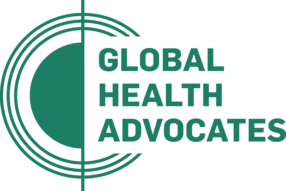To date, the COVID-19 pandemic has killed 4.62 million people and changed life as we know it – from the way we work and study, to supply chains and travel, there’s no part of society that COVID-19 hasn’t touched. COVID-19 recovery is at the top of every political agenda, with many donors – including the European Union (EU) – supporting the Access to COVID-19 Tools (ACT) Accelerator, a global collaboration mechanism aiming to accelerate the development, production, and equitable access to COVID-19 tools. But significantly more funding is needed for ACT-A to complete its work. The latest estimates anticipate that it may cost between $50-66 billion to fully vaccinate the world[i], plus additional grants needed to cover the cost of delivery in low-and-middle-income countries (LMICs). Meanwhile, ACT-A is still facing a $16.8 billion funding gap for 2021, of which we call on the EU to contribute €1.3 billion more to meet their “fair share[iv]”.
COVID-19 is one of the worst global health emergencies this world has ever seen, and new variants continue to increase the urgency of quickly minimizing the virus’ spread. The EU has blamed an overly strained development budget as a reason not to contribute more financial resources to ACT-A. While we agree that the global COVID-19 fight must not be funded at the detriment of other global health priorities, it is imperative that the EU do their part to fully fund ACT-A as a bare minimumresponse to the COVID-19 pandemic. To do this, the EU should turn to the budget lines designed for crises exactly like this: the Emerging Challenges and Priorities Cushion (the cushion) and the rapid response pillar within the NDICI/Global Europe instrument. Here are the top five reasons why the EU should use the cushion and rapid response pillar to meet their fair-share to ACT-A and contribute to the wider, long-term and systematic COVID-19 response:
- Because responding to crises like the COVID-19 pandemic is exactly what these budget lines were made for.
- Because that’s where the money is. The cushion and the rapid response pillar have been allocated €8.49 billion and € 2.83 billion euros respectively for the period of 2021-2027
- Because the thematic budget line for “Global Challenges” is already significantly overstressed. Global Challenges has only been allocated €3.36 billion for the entire 7 year period, split over four sub-budget lines, of which only one focuses on health.
- Because EU investments for global health in partner countries are insufficient.
- Because not doing so will actually cost much more.










